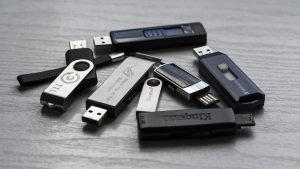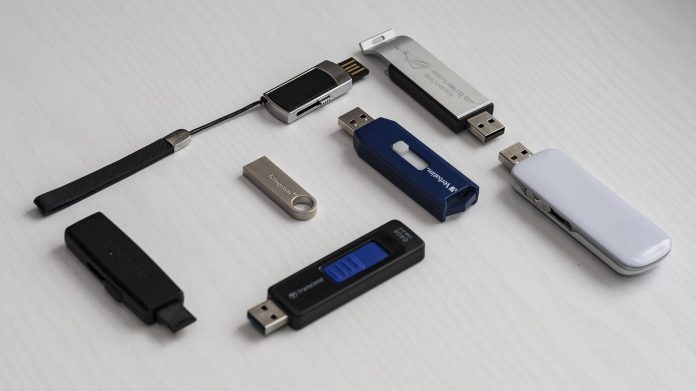What do most users do when using removable media?
Portable devices and portable media constitute a significant security risk to both corporations and government entities. They are simple to use and convenient. Portable gadgets, on the other hand, can transmit malware from one device to another without the user’s knowledge. If you put an infected device into a new machine, the virus may be installed on the new device.
The usage of removable media increases the risk of data loss if the media is lost or stolen. This can result in the compromising of enormous volumes of sensitive data, which can cause considerable damage to a company’s reputation as well as financial fines.
When used to convey or store data, removable media may also apply to several removable storage devices. Here are several examples:
USB thumb drives and Hard disk drives.
Common devices today may include digital cameras, Cell phones, and Printers, either wired or wireless.
Other external or dockable devices with removable media capabilities can be readily removed from a system.
Why should you safeguard your portable media?
When you insert a device that has been intentionally or unintentionally loaded with malicious software, it can infect your computer. Because of this risk, if you come across one of these portable storage devices, never connect it to your computer or phone.

Flash media such as thumb drives, memory sticks, flash drives, external hard drives, optical discs, and external music players such as iPods are examples of this sort of media.
What must users ensure when using removable media is listed below?
When storing data on a removable media device, use suitable encryption.
Do not save your organization’s data on any personally owned/non-organizational removable media.
Label all removable media as a best practice, especially if they include PII, PHI, or other sensitive data.
Passwords should be used to protect all removable media. Encrypt data stored on removable media. If removable media is essential, all data on all devices should be encrypted.
When storing data on a removable media device, use suitable encryption.
Only save work-related data on removable media when it is operationally essential, held by your business, and allowed by the proper authority following policy. Do not save your organization’s data on any personally owned/non-organizational removable media. Avoid introducing unfamiliar removable media into your PC. Sanitize, purge, discard, and destroy removable media following your organization’s policy.
What do most users do when using removable media at your organization or any other place?
These are listed below-
Data security: Because removable media devices are often compact and portable, they are readily misplaced or stolen. In reality, every time you let an employee utilize a USB flash drive or another small storage device, essential or sensitive information about your firm could slip into the wrong hands. Furthermore, even if your external storage devices are encrypted, you will be unable to recover lost files if the USB flash drive or other device is lost.
Read Also: Which is a risk associated with removable media?
Malware: Simply said, when employees utilize removable media devices, they may unwittingly distribute malware from one device to another. This is due to the ease with which malicious software can be installed on USB flash drives and other storage devices. Furthermore, it just takes one infected device to infiltrate your entire company’s network.
These are the points what must users ensure when using removable media.
Conclusion
Do not use any personally owned/non-organizational removable media on your organization’s systems. Portable hard drives, USB flash drives, memory cards, and other types of detachable media are essential for storing and transporting data quickly. Many organizations utilize removable media as backup storage for essential digital files or to free up extra storage space on work computers. So it is very important to keep in mind some of these essential points, and what most users do when using removable media.







